Somewhere between burning dinner (sorry, K) and ghosting the therapist (okay this was long ago but using here for relevance), you (ahem: I) start to realize: you might be failing. Again. And not in a cute, “oops I tripped but found myself” kinda way.
No. In a guttural, soul-crushing, sitting-on-the-shower-floor weeping kind of way.
But before you go fixing anything, I invite you to do something much more elegant:
✨Romanticize your failure🌸🌈☕🐦🔥
Not like an Instagram girlie romanticizes her matcha latte and unfinished draft (for all we know, there is no draft). Rather, like a French philosopher — where the failure itself becomes like a lover who eludes us but never really goes away (it’s there curled up inside you right now, isn’t it?)
I got the idea for this (wtf is this) after reading The Virtues of Failure by Charles Pépin –
…is what I’d like to say here with utmost confidence but truth is, after researching philosophical takes on failure and stumbling upon the existence of this book wherein Pépin posits (that’s fun to say, now make it a tongue-twister) that failure’s a way of fulfilling our humanity, I tried to read this book and, well, failed.
Mostly because I couldn’t find a translation and, much earlier in my life, sitting in a dusty airless classroom in Mississauga Secondary, I failed to ever feel inspired to learn French, even though it was lovingly spoonfed to us by the Canadian Government.
At least that failure I hope to correct by making sure my daughter goes to a full on French immersion school. Ha! How our children suffer cruel success for our own bitter failures.
In any case, I digress. And because digression is something I often don’t fail at, let’s just dive right in.
7 ways you can romanticize your failure like a French philosopher
including:
the philosopher’s name (go me),
their signature theory of ruin (is it vibes? is it light-academia? idk 🤷🏽♀️ is this a philosophy newsletter, ydk 🫵🏽)and what it teaches us about how to fuck up beautifully, with enough existential flair to make it look like a masterstroke (always weird to write this, ifykyk)
Albert Camus | Fail With Grace
TOR (theory of ruin, get with the program people): The Absurd
Camus didn’t offer a cure for failure — he offered style and defiance. His philosophy of the absurd reveals that the world owes us no inherent meaning, yet every morning we wake up and try to find meaning anyway. Such absurd tension…dissonance…is the heart of human existence.
Camus’s absurd hero (think Sisyphus pushing his boulder) embraces this struggle with full awareness and defiance, finding dignity and even beauty in the relentless effort despite knowing it’s ultimately futile. Failure, then, is not a sign of defeat but a sign that you’re awake and refusing to lie to yourself about life’s glorious hardships.
This poem by Bob Hicok encapsulates this so beautifully (and it’s funny): After working sixty hours again for what reason
Jean-Paul Sartre | Fail Because the Alternative Is Lying to Yourself
TOR: Bad Faith
Sartre says (that’d be a cool game) we spend much of our lives in bad faith…pretending we aren’t free by saying things like “I had to do it,” “I couldn’t leave,” or “that’s just who I am.” But underneath those excuses is existential anxiety – fear of freedom and responsibility.
I remember watching Queen with Karan when we were still in a long-distant relationship. To sum it up briefly, Rani is a shy, apparently traditional Indian girl, wooed by the more modern, likely richer Vijay. But she ends up getting publicly jilted a day before her wedding to the humiliation of her entire family. Though she wallows for a few nights, she ultimately decides to go on the European honeymoon she had planned…alone. The whole film is a super fun illustration of Sartre’s bad faith straight, inverted, realized, and transcended. I won’t spoil anything more, but…y’all should watch it.
To live in bad faith is to deceive ourselves by performing certainty and pretending our choices are determined by external forces or fixed identities. But to live authentically, and therefore to fail authentically, is to admit that your life is the result of your own choices, even when those choices bring pain or discomfort.
Simone de Beauvoir | Fail as a Form of Resistance
TOR: Ambiguity and Becoming
Sometimes our lives stop fitting the shape they were already taking, like a strange snake morphing from one skin to the other and then midway, it hisses, curls up into a ball, grows wings, and takes off into the sky like “actually fuck you all, I’m a bird now bitches”.

& For de Beauvoir, that chaotic drift is where real life begins. Not in the roles we’re handed, but in what we choose in their absence. Identity isn’t something you inherit. It’s something you keep making, even when it costs you clarity, companionship, or the illusion of being right.
In The Ethics of Ambiguity, she writes:
But this element of failure is a very condition of his life; one can never dream of eliminating it without immediately dreaming of death. This does not mean that one should consent to failure, but rather one must consent to struggle against it without respite.”
That’s the heart of it: failure isn’t an interruption of becoming—it’s the fuel. Think of The Worst Person in the World. Julie tries on life after life—art school, med school, marriage, cheating, solitude—not because she’s flaky, but because she’s in motion. She’s failing and un-failing her way into a self that isn’t premade. And that’s not indulgent. That’s existence, according to de Beauvoir. To stop struggling would be to stop becoming. To stop becoming is the real failure.
Hélène Cixous | Fail by Being Too Much
TOR: Écriture féminine
If you translate “Écriture féminine” it literally means “women’s writing”, and yet as a concept it encapsulates something far more universal.
Cixous never wanted to write like a man. She wanted to write like a body—overflowing, contradictory, fluid, and deeply unserious in all the right ways. Her work argues that failure isn’t what happens when you’re incoherent, hysterical, or excessive. It’s what happens when you try to make yourself legible to a system that was never meant to hold you.

I’ve been reading Geetanjali Shree’s International Booker-prize winning Ret Samadhi (translated as Tombs of Sand by Daisy Rockwell). The way Shree captures that rushing, shifting, befuddling movement of family life in India all within the backdrop of societal stasis — it’s mind-boggling, funny, and defies logical execution…it shouldn’t work, but it does, and oh how sweetly.
Roland Barthes | Fail as a Text of Singular Purpose (& Revel in Being Read a Thousand Ways)
TOR: Death of the Author
Once a text leaves you, it stops being yours. It fragments, misfires, becomes something else in the hands of whoever picks it up next. Meaning, Barthes insists, isn’t delivered…it’s invented, over and over again, by the reader.
So failure isn’t so much saying the wrong thing as it is assuming you could ever say one thing. That your work, your life, your choices, could be understood in one neat interpretation.

I’m thinking of live performances of iconic songs by transcendent artists like Leonard Cohen. The song was never truly written in one moment and delivered to you in another distinct one. No…it braided into the fabric of our time and existence and conscious experience…and then comes to us again and again in slight variations and beautiful additions…in particular through the vehicle of the live performance, wherein the artist…the author…rewrites their own work before the audience, the reader, who — in turn — by experiencing it in this strange tangible alive way are also participating.
Is it because the original wasn’t perfect? I’d venture to say it isn’t about that at all. If you’re lucky enough as K to be obsessed with a musician like LC, then I’d encourage you to listen to 10-15 different live versions of the same song…see the shifts, breaths, lines changes…space and silence created, music remade on the spot.
And for us…let’s embrace the misunderstandings, the half-finished drafts, the things that didn’t land. Those aren’t flaws. They’re openings…little portals to another time-space continuum where it can all start again and maybe even end, just to resume.
Julia Kristeva | Fail by Feeling What Shouldn’t Be Felt
TOR: Abjection
Kristeva’s “abject” is the thing we reject to feel clean—blood, grief, snot, too much feeling. So when you cry in public, or let yourself unravel, you’re not losing. You’re rebelling by the simple act of feeling.
Abjection involves a “crisis of narcissism” where the ego confronts what it must reject to maintain its coherence.

This rejection is not just external but also internal, as the subject must abject parts of itself to sustain identity. The abject remains hauntingly close, never fully assimilated or eliminated, hovering at the margins of subjectivity and threatening disintegration.
In The Substance, Demi Moore’s character undergoes a literal crisis of narcissism—confronting the younger, “perfected” version of herself manufactured by the “Substance”, only to find that the rejected self does not disappear.
Kristeva’s abjection lives in that doubled body: the aging woman is treated as waste, socially and symbolically expelled, but her presence keeps returning, destabilizing both versions and dissolving the illusion of a coherent self.
Therefore, accepting failure through the lens of abjection means recognizing and working through the repulsion and rejection that failure triggers, allowing us to reconfigure our identity and boundaries in a way that welcomes imperfection and vulnerability rather than excluding them.
You are not broken. You’re just outside what the world knows how to name.
Édouard Glissant | Fail by Refusing to Explain
TOR: Opacity
Some people speak and the world leans in. Others speak and are asked to slow down, clarify, translate, smile. Glissant knew what that was: the slow violence of being hand-me-down explained to a system that never saw you as the whole, complex, nuanced being you are to begin with. He didn’t want understanding. He wanted opacity — the right to remain dense, difficult, unfinished.
Clarity isn’t always a virtue. Clarity can also very much be seen as colonial…something sharp enough to slice you into manageable parts.
Percival Everett put it best:
I want a readership that wants to read things because the work is difficult. I want the fun to be in figuring it out. That’s what reading is all about, and to me writing is really just an extension of reading.
Reminds me of when I first started reading NK Jemisin’s Broken Earth Trilogy and felt like I needed Adam Sandler’s magic remote control to pause the whole world so I could finish it all right then, right there. And then I got to the last book and was like, jaw to the floor, going what the fucking fuck what is this what’s happening I can’t go on, I will go on, wait what!
Glissant would call that a gift. The work doesn’t make itself simple because it’s not meant to be consumed. In turn, it actually subsumes you.
So, maybe it fails the traditional test of an entertaining, tying-up-loose-ends flourishing finish, but in doing so it also transcends what any of this content-churning chaos demands of us in the first place.
Which is all to say:
Failure isn’t a flaw…it’s a philosophy.
So fail, my friends, & fail well, fail knowingly. Fail in style, with panache. Fail alongside a bibliography and a soundtrack and too much eyeliner. Fail like your life depends on it, because real life…it kinda does.



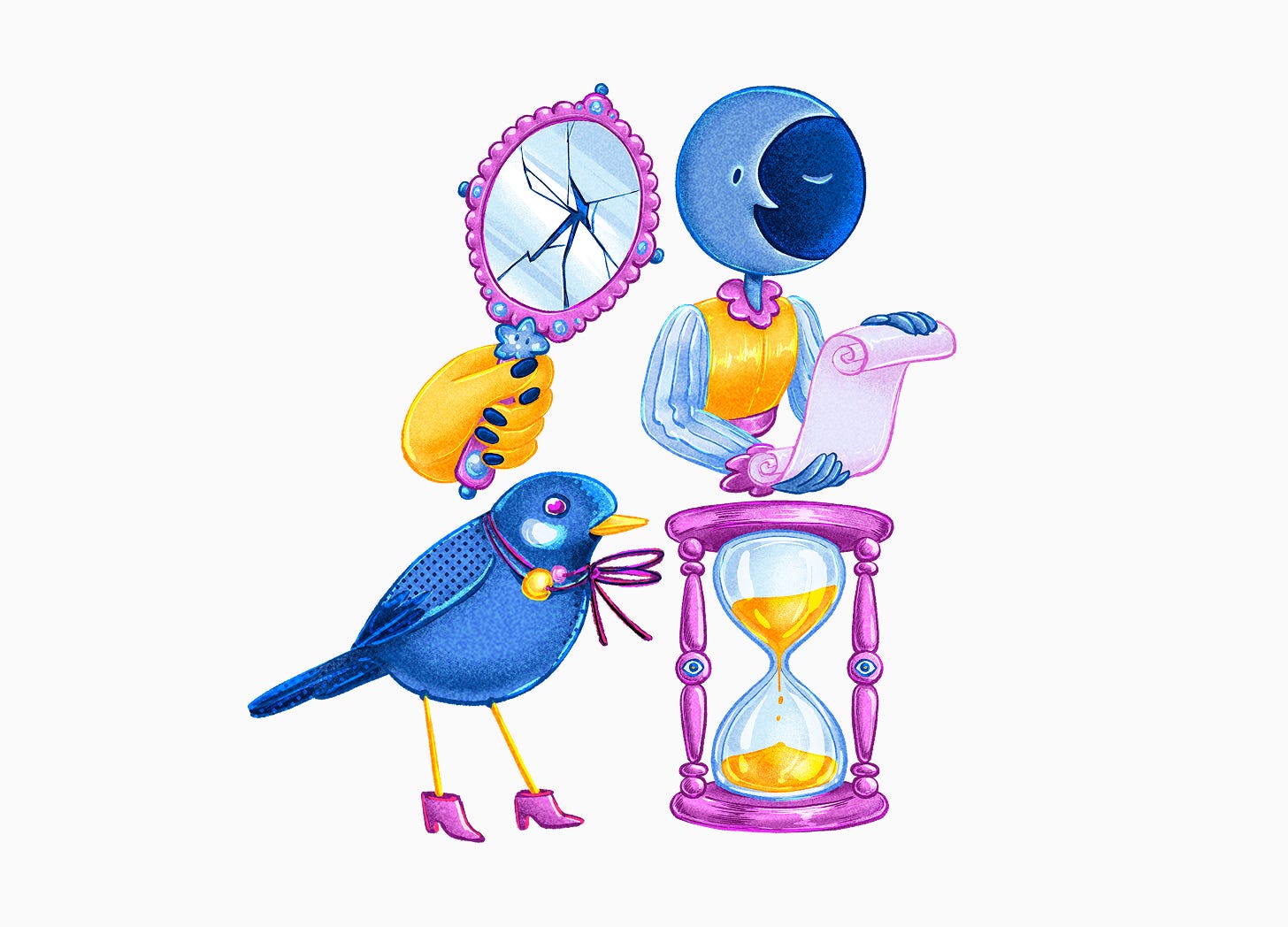
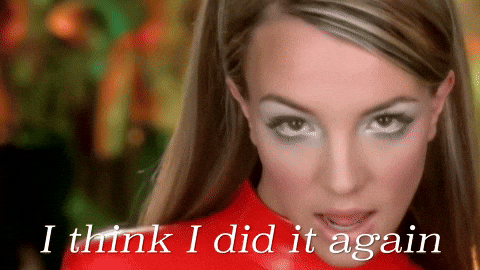
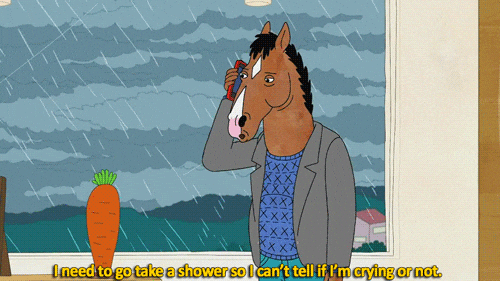





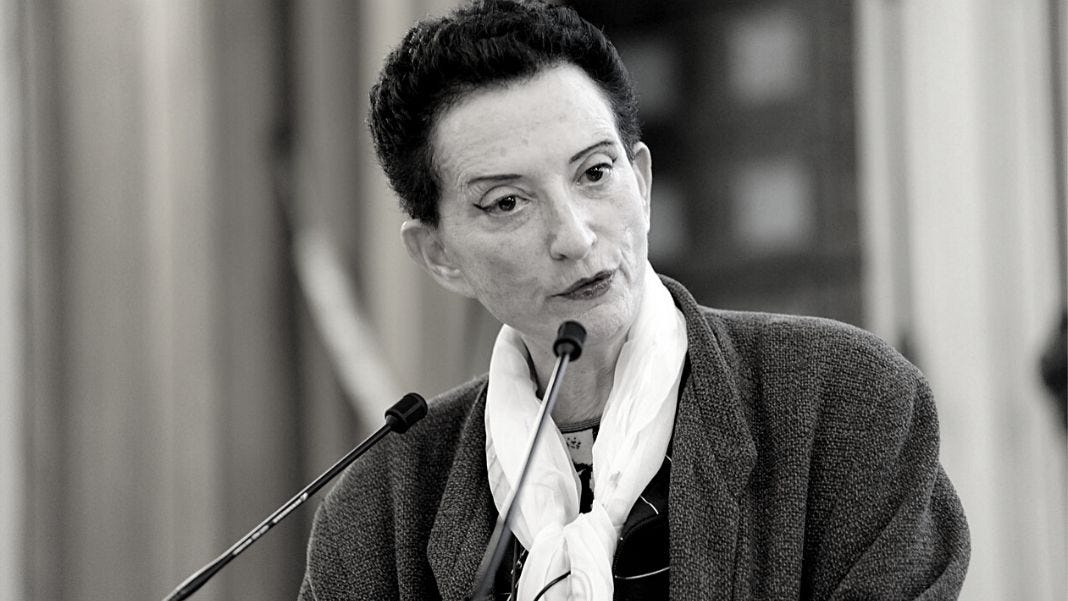
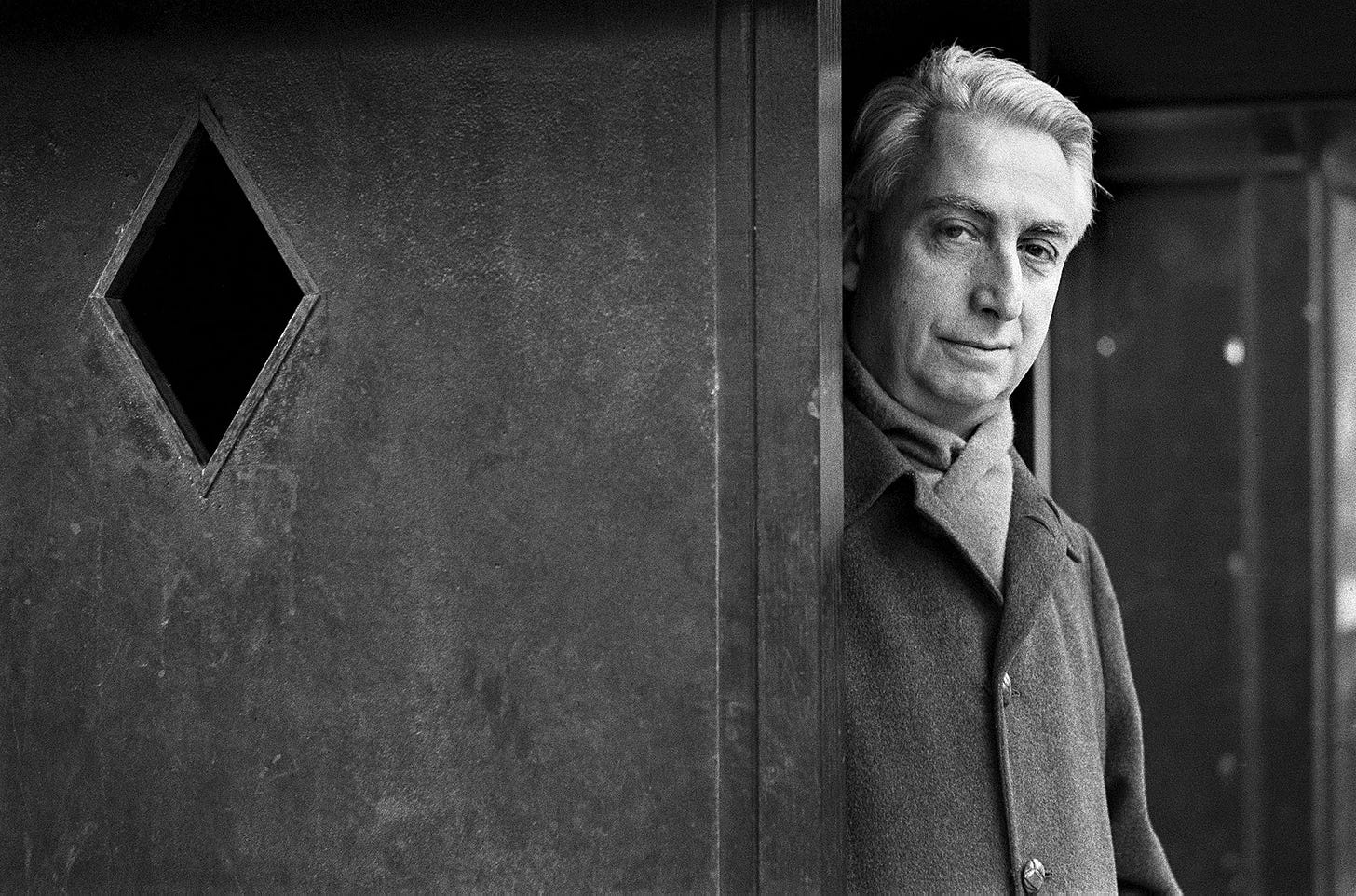



I'd love to add a quote from Camus. "Become so very free that your whole existence is an act of rebellion." Once you free yourself from the grief and guilt of your failures, you can see how beautiful they can be. Being imperfect is the most human we can hope to achieve. We failed an exam? Yes. And we conquered trying.
Thank you, Shannan--inspiration for these exasperating times. I needed this right now.